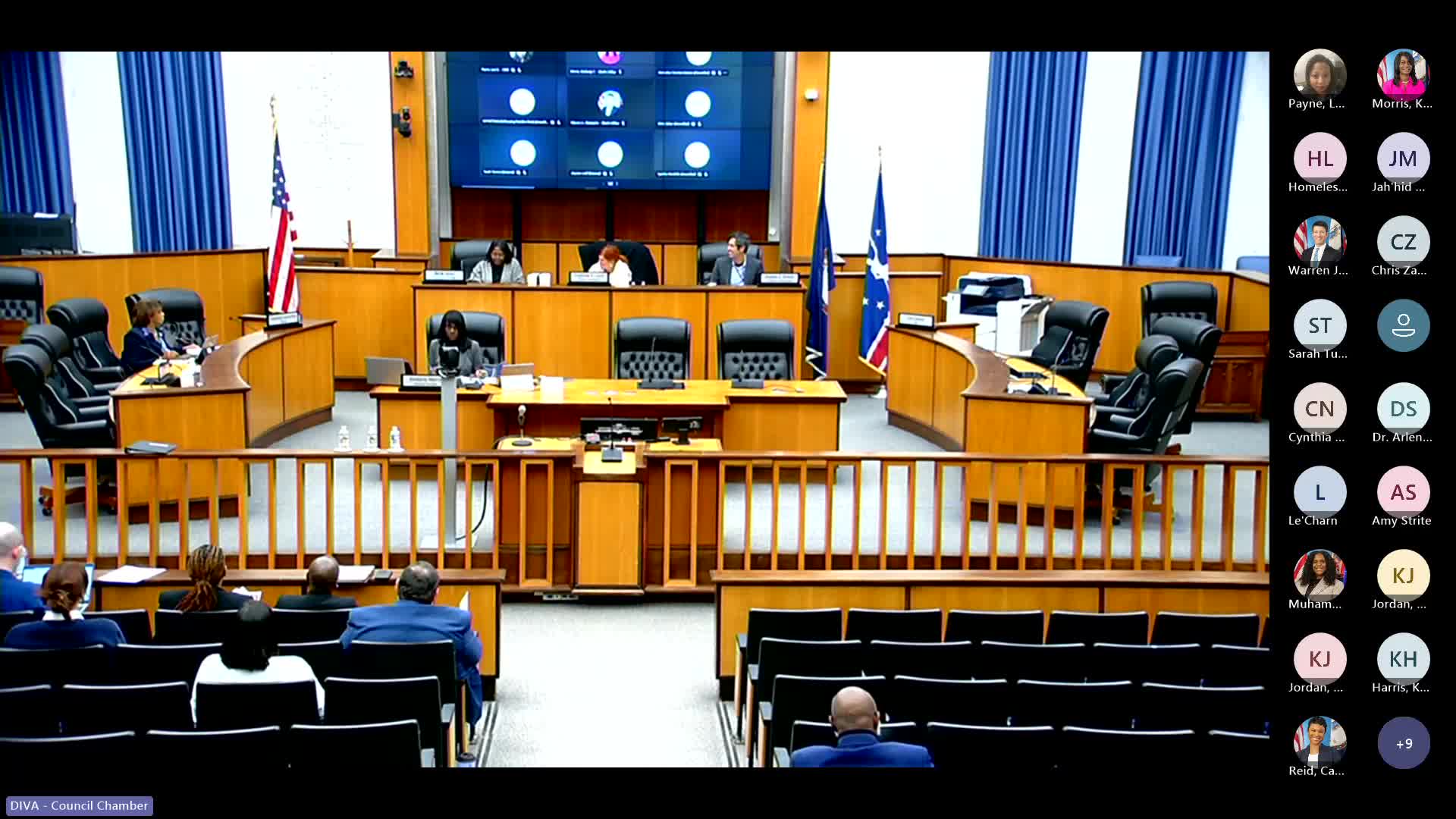Public urges immediate sheltering as committee and city describe shelter capacity, coordinated-entry limits and EBT theft spike
Get AI-powered insights, summaries, and transcripts
Subscribe
Summary
Residents, advocates and service providers urged Richmond City Council committee action to expand shelter and frontline access amid freezing weather; city officials described shelter capacity, efforts to add beds and a spike in reported EBT (SNAP) thefts.
Public commentators, service providers and city officials pressed Richmond City Council's Education and Human Services Committee on urgent shelter needs and a recent spike in stolen Supplemental Nutrition Assistance Program (SNAP) benefits during a meeting that followed a boards-and-commissions agenda item.
Speakers representing grassroots groups, shelters and legal-aid organizations described people sleeping outside in freezing temperatures and urged the city to extend and expand shelter options and front-door access to services. Several asked the committee to convene stakeholders and to pursue immediate, interim options such as emergency hoteling and faith‑based partnerships while working toward long‑term deeply affordable housing solutions.
Residents and advocates gave detailed accounts of outreach and gaps in service. Tracy Hartney Scott, housing chair for the Virginia State Conference NAACP in Richmond, said, “The people living on the streets absolutely cannot wait any longer.” Beth Van Turnbull, executive director of Housing Families First, said the shelter she runs moves families to permanent housing and emphasized that both shelter and deeply affordable permanent housing are needed. Omar El Gaddafi of the Legal Aid Justice Center told the committee he had information from Richmond Housing Authority indicating roughly 700 public‑housing households with no income—flagging imminent homelessness risk.
City officials acknowledged those concerns and described recent operational steps. Tracy DeShazer, deputy chief administrative officer for human services, said the city was operating roughly 400 total shelter beds across providers and that “the City of Richmond is responsible for 200 of those 400” beds. DeShazer and Tiffany Ford, director of the Department of Neighborhood and Community Services and head of the new Office of Homeless Services, said the city ran overflow shelters during the recent water crisis and winter surge but that staffing, clinical capacity and sustainable providers are constraints.
Steve Harms, senior policy adviser to the chief administrative officer, described efforts to expand year‑round shelter capacity and stabilize operations. Harms said the city had added about 100 year‑round shelter beds and now had “over 300 beds operating year round throughout the city,” and that system‑wide capacity had been expanded to over 400 beds. He described the Salvation Army partnership as the site that provided a stable inclement‑weather provider and noted the city’s use of surge days and leased sites (the former Richmond Hostel, operated by Home Again) to increase family shelter capacity.
Officials explained differences between inclement‑weather shelters (short‑term, surge operations that open when temperature thresholds are reached) and year‑round shelters that provide assessments, case management and wrap‑around services. Tiffany Ford and DeShazer emphasized that inclement‑weather settings can be lower‑barrier congregate environments that are harder to staff with intensive clinical supports, and that providers prefer operating year‑round shelters where they can deliver more sustained services.
The committee chair and members asked the administration to convene a stakeholder meeting within two to three weeks, to publicly notice it, and to reissue or update a request for information for faith communities and other potential site hosts. Members also suggested exploring partnerships with local hospitals for a pilot of permanent supportive housing and revisiting a local choice subsidy voucher concept for more flexible rapid rehousing.
Separately, DeShazer reported an increase in reported SNAP benefit theft. She said the city’s Department of Social Services had received 151 attestation claims of benefits theft as of the day prior to the meeting and that the federal SNAP benefits replacement program that reimbursed such losses ended Dec. 1. DeShazer described the theft as “not fraud” by recipients but theft by external actors and urged affected residents to report incidents to police so trends can be investigated and prosecuted.
Committee members and advocates urged immediate interim steps — including more physical walk‑up access points for coordinated entry, an expanded volunteer and faith‑partner outreach, and short‑term hoteling when needed — while the city continues to pursue long‑term housing supply and system reforms.
The chair asked the administration to return with a public stakeholder meeting scheduling and with updates on funding avenues to help residents who lost EBT benefits while the city, state and federal authorities pursue longer‑term solutions and investigations.
